The world is about to bid farewell to 2013, a year in which the global economic situation has experienced highs and lows. Here we summarize the major events which have affected international markets, and the key words which have attracted the attention of global investors in 2013.
Moderate recovery
This year, the global economy has continued a moderate recovery trend from 2012. Growth in developing economies has slowed, but as a whole it is still much faster than in the developed countries.
The IMF forecasted that the growth of the world economy in 2013 would be 2.9 percent, compared with 3.2 percent in 2012. Overall growth in emerging and developing economies fell to 4.5 percent from 4.9 percent, and in the advanced economies dropped from 1.5 percent to 1.2 percent.
U.S. economic growth declined from 2.8 percent to 1.6 percent; the euro zone economy continued to shrink, down slightly from 0.6 percent to 0.4 percent; Japan maintained a 2 percent growth rate.
Exiting QE
After six months spent preparing the ground, the Fed finally announced on December 18 that there will be a slight reduction in QE (quantitative easing) from January 2014.
This means that the Fed will continue to inject money into the economy, at a slightly slower pace. But the vulnerable emerging markets might be exposed to pressure again due to the appreciation of the U.S. dollar and markets once more coming under pressure.
There was a general expectation that the Fed would exit QE at the end of August 2013, which accelerated the withdrawal of funds from emerging markets. As a result, the exchange rates of the Indian Rupee and the Indonesian Rupiah fell sharply and their stock markets plummeted.
WTO and TTP
On December 7, after tough negotiations and mediation, the World Trade Organization (WTO) finally reached the first major agreement since its founding in 1995 at the Ministerial Conference in Bali, Indonesia.
Analysts believe that the "Bali package of agreements," although exciting, amounts to no more than a severely diminished version of the WTO Doha Round agreement. It is still a long way from the completion of the Doha Round.
This suggests the influence of the WTO is weakening.
As a result of the vigorous lobbying of the Unites States, there has been progress with both the Trans-Pacific Strategic Economic Partnership Agreement (TPP) and the Transatlantic Trade and Investment Partnership (TTIP), launched in early 2013.
Japan and South Korea announced the decision to join the TPP negotiations in March and October respectively. Although the U.S. budget impasse and difficult negotiations with Japan slowed down the process of TPP negotiations, observers believe that the negotiations will wrap up in early 2014. In addition, Europe and the United States have launched three rounds of TTIP negotiations this year.
 |
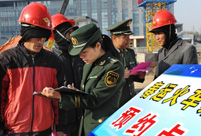 People prepare for upcoming 'Chunyun'
People prepare for upcoming 'Chunyun'  Highlights of Beijing int'l luxury show
Highlights of Beijing int'l luxury show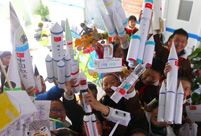 Record of Chinese expressions in 2013
Record of Chinese expressions in 2013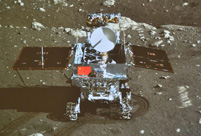 China's moon rover, lander photograph each other
China's moon rover, lander photograph each other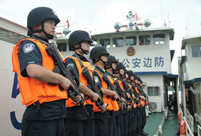 17th joint patrol of Mekong River to start
17th joint patrol of Mekong River to start Spring City Kunming witnesses snowfall
Spring City Kunming witnesses snowfall Heritage of Jinghu, arts of strings
Heritage of Jinghu, arts of strings Weekly Sports Photos
Weekly Sports Photos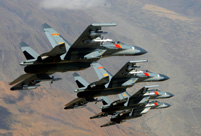 PLA elite units unveiled
PLA elite units unveiled  China's stealth fighters hold drill over plateau
China's stealth fighters hold drill over plateau Chinese navy hospital ship's mission
Chinese navy hospital ship's mission  "Free lunch" program initiated in NW China
"Free lunch" program initiated in NW China  Rime scenery in Mount Huangshan
Rime scenery in Mount Huangshan DPRK's Kaesong Industrial Complex
DPRK's Kaesong Industrial Complex 'Jin' named the word of the year
'Jin' named the word of the year Day|Week|Month